Haoma Bangkok: Fine in Green
- DiningMedia
- 2024년 9월 3일
- 5분 분량
Haoma’s ethos of respecting nature through local, sustainable, and organic sourcing is embodied in their cuisine, resonating deeply with modern, sustainability-conscious diners.

Chef Deepanker Khosla of HAOMA Bangkok
Today, sustainability is one of the most talked-about topics, and fine dining is no exception. Many fine dining restaurants are exploring innovative ways to incorporate sustainable practices into their offerings. One such place is HAOMA, an Indian-inspired fine dining restaurant in Bangkok that embodies a vision of green hope. The Michelin Guide awards "Green Star" to restaurants that excel in sustainable gastronomy, and HAOMA has earned this distinction. Additionally, it was recognized in the newly established "Asia’s 50 Best Restaurants", winning accolades in both categories. HAOMA, which promotes Neo-Indian cuisine, is led by Deepanker Khosla, a chef from Allahabad, India. Known as DK, he is a young chef in his mid-30s who has made a significant impact on the culinary scene.

Chef DK’s Culinary Journey
DK's culinary journey began at the age of 17 when he graduated from culinary school and started working in hotel kitchens, dreaming of becoming a chef. Nine years ago, he moved to Thailand to work for a hotel restaurant chain, marking the start of a new chapter in his life. After two years in Thailand, DK decided to pursue a different path. He bought a natural gas-powered truck and embarked on a journey across Asia, creating Indian-inspired tacos. The truck, equipped with solar-rechargeable batteries and a recycling water tank, allowed DK to start incorporating sustainability into his culinary practices. As he traveled through Bangkok, Phuket, Vietnam, Cambodia, and other parts of Southeast Asia, he discovered local flavors, ingredients, and recipes, gaining invaluable experience. These experiences and connections eventually led to the creation of a farm for HAOMA in partnership with a farmer in Chiang Mai.
Inside HAOMA
Located in the bustling heart of Bangkok, Haoma is a daring venture in sustainable gastronomy. The restaurant is named after the sacred plant from the ancient Indo-Persian faith of Zoroastrianism, which is believed to grant health, fertility, and immortality. Haoma reflects a deep respect for nature and a commitment to nurturing both body and planet. This mission is symbolized by the restaurant’s name and the flower of life emblem, representing the symbiotic relationship between diners and the ingredients in every dish.

aquaponics farming system in the restaurant
Haoma also features a unique aquaponics system that recycles water and provides a clean environment for on-site fish farming, with the fish eventually served to guests. The concept of Urban Farm dining, coupled with HAOMA's "0 Kilometer" sourcing philosophy, challenges the conventional belief that the best ingredients must be imported from far-flung regions. HAOMA proves that with time, care, and innovation, ingredients of the highest quality can be grown locally. This not only reduces the carbon footprint associated with food transportation but also supports local communities and promotes biodiversity.
One of the key innovations at HAOMA is its closed-loop farming system, which integrates aquaponics—a method that combines aquaculture and hydroponics. This system is supported by the collection and recycling of over 200,000 liters of rainwater through a Nordic water system, even enabling the restaurant to serve carbonated water produced on-site. The aquaponics system supports the cultivation of 40 types of herbs, various vegetables, and fruits, while also raising fish that are served at the restaurant. The fish are fed with composted organic waste generated within the farm, creating a truly sustainable cycle.

Haoma's private farm in Bangkok
Act Green
HAOMA’s commitment to sustainability is vividly displayed through the restaurant's innovative farming practices and a philosophy that places the environment at the forefront of its culinary experience. It begins 23 kilometers away from downtown Bangkok, at its own farm. This lush farm is not just a source of ingredients but a testament to the restaurant’s ethos. Tropical fruits like mangoes and papayas flourish here, nurtured by organic farming methods. The farm is also home to over hundreds of chickens, some goats and (soon) cows, all raised with care and a focus on environmental stewardship. The result is a self-sustaining ecosystem that supplies 100% of the ingredients used in the restaurant’s kitchen.

Breakfast at HAOMA farm: everything harvested on the day
Twice a week, Chef DK himself visits the farm to oversee the harvest. Under his guidance, the staff meticulously manage every aspect of the farm’s operation. The farm-to-table concept is taken to new heights at HAOMA, where the idea of importing ingredients from distant locations is viewed not just as unnecessary, but as counterproductive to sustainability. Instead, the restaurant prides itself on cultivating and raising most of its ingredients on-site, ensuring they are organically and sustainably produced.

However, HAOMA’s dedication to sustainability extends beyond the farm. The restaurant’s wine list is a carefully curated selection of organic, sustainable, and bio-organic certified wines. Each bottle is chosen from producers who share HAOMA’s environmental values. The restaurant also sources wild tea from Thai boutique farmers, locally grown coffee, and other ingredients from small farmers who prioritize organic and biodynamic practices.
Chef DK candidly shares that the driving force behind this approach was the COVID-19 pandemic. The crisis underscored the importance of self-reliance, leading DK to shift away from sourcing ingredients globally and towards a model of local, sustainable farming.

For DK, sustainability is not just a buzzword—it’s a way of life. His mission is to create food that nourishes both people and the planet. This vision extends beyond the kitchen, influencing every aspect of the restaurant’s operations. While HAOMA’s 15-course tasting menu may introduce guests to new and nostalgic flavors, it also embodies the farm-to-table philosophy that is central to the restaurant’s identity.
Looking to the future, DK envisions a continued evolution of food culture, driven by the principles of sustainability and self-sufficiency. He acknowledges that it might take 10 years or more, but his goal is for HAOMA and himself to keep promoting the concepts they are passionate about and to contribute to the evolution of food culture. He believes that as long as they can create a more sustainable system and engage in activities that reflect their lives and identities, rather than focusing solely on chasing three Michelin stars, there will be no regrets.
This ethos is reflected in every aspect of HAOMA's culinary approach. The restaurant adheres to a “No-Vegetable-Left-Behind” policy, utilizing only seasonal and homegrown ingredients, supplemented by produce sourced from local farmers, breeders, and fishermen. The sister farm in Chiang Mai plays a crucial role in this ecosystem, providing HAOMA with organic and sustainable ingredients that further reduce the restaurant’s environmental impact.

Haoma's Bar
HAOMA Experience
The dining starts at the bar next to the dining halll. Sommelier&manager Vishvas Sidana skillfully makes delicious cocktalis. Also, 2 kinds of amuse-bouche is served, to show how this restaurant is deeply connected to Indian food culture.

Ginger cocktail and Pani Puri
DK’s cuisine tells the story of the land and the people who cultivate it. His dishes, deeply rooted in Asian and Indian traditions, are designed to evoke a sense of place and stir feelings of nostalgia while offering something entirely new. Each plat shows HAOMA's commitment to sustainability, showcasing the possibilities of a culinary future that is both innovative and environmentally conscious.

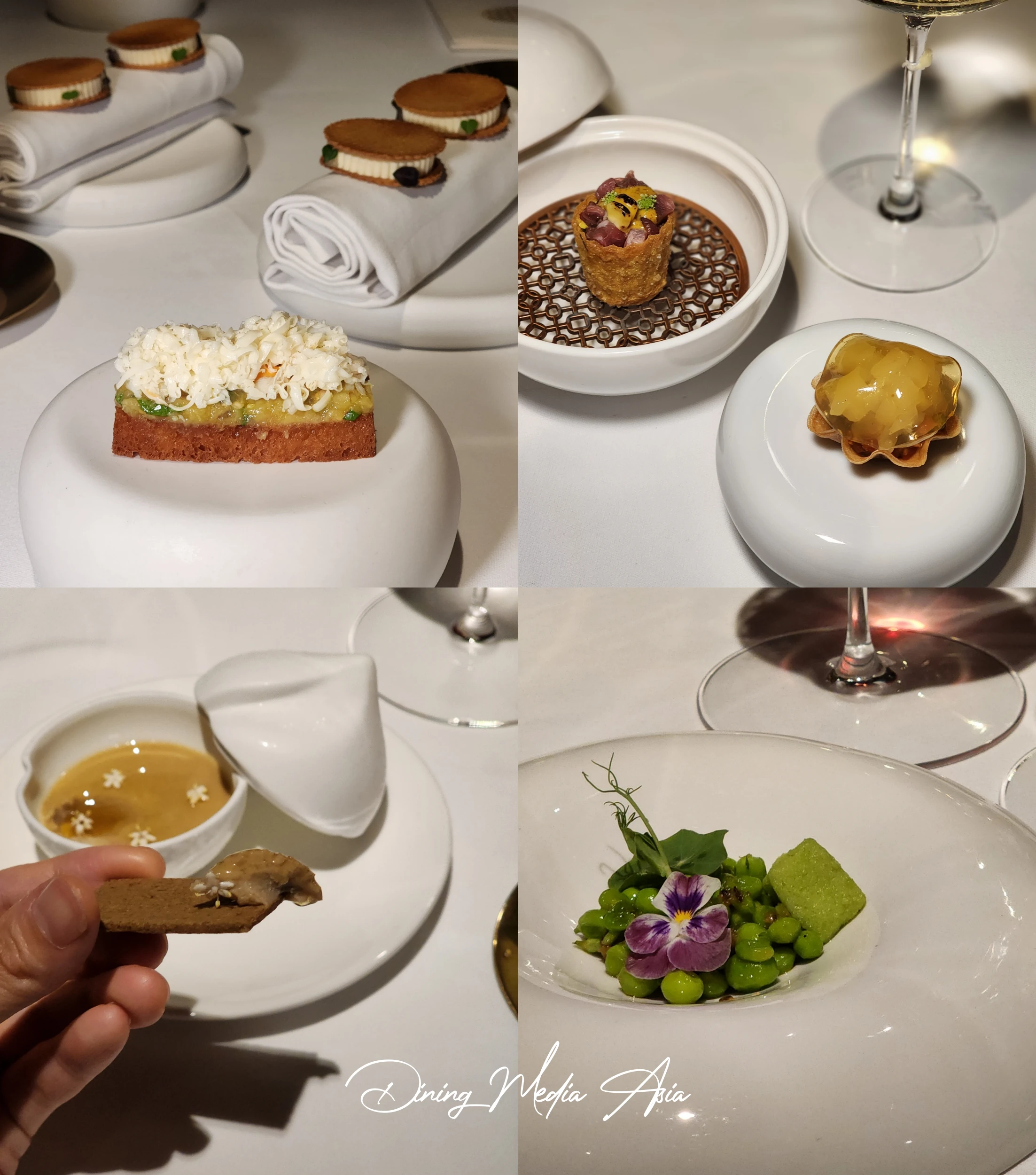
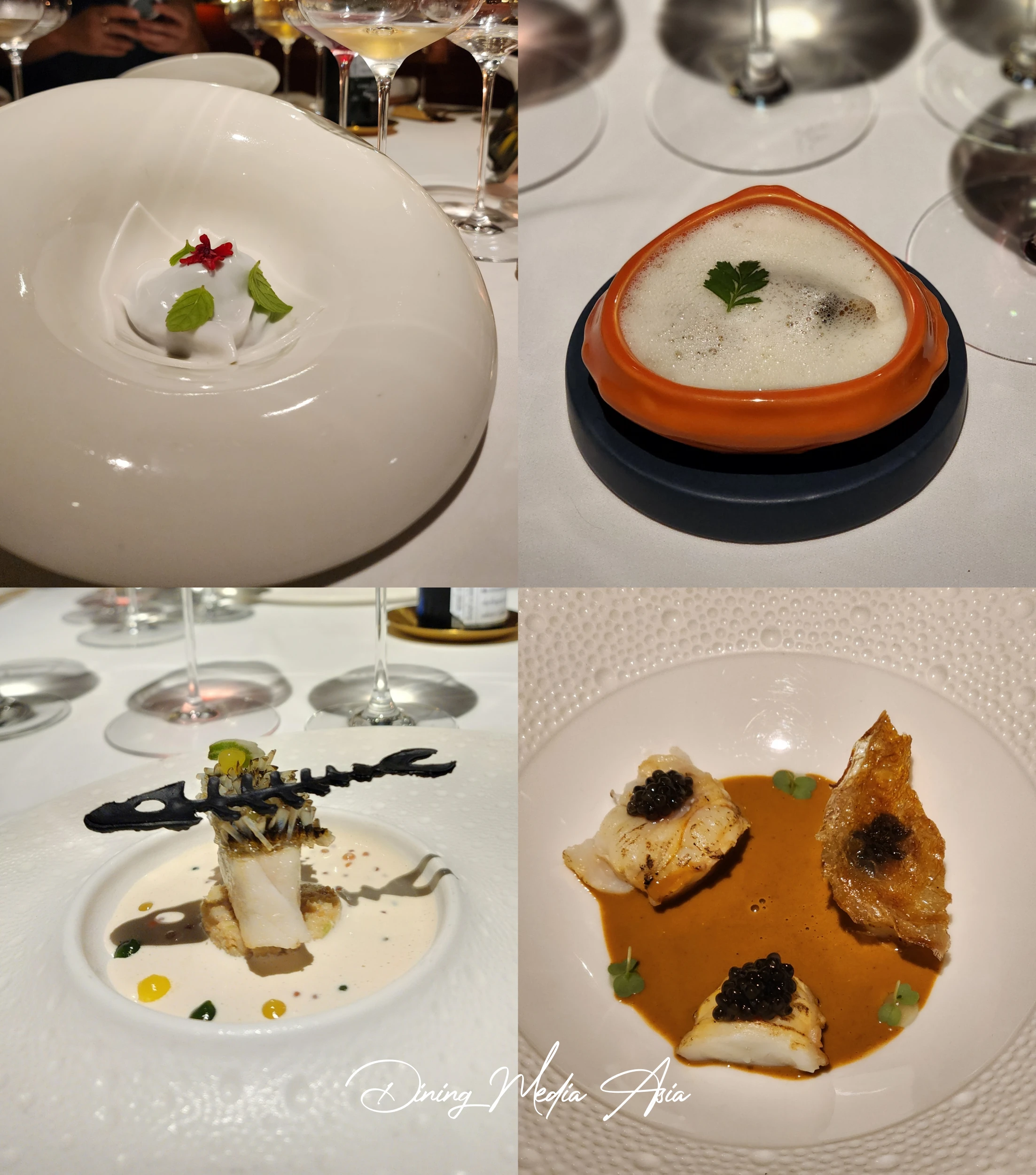
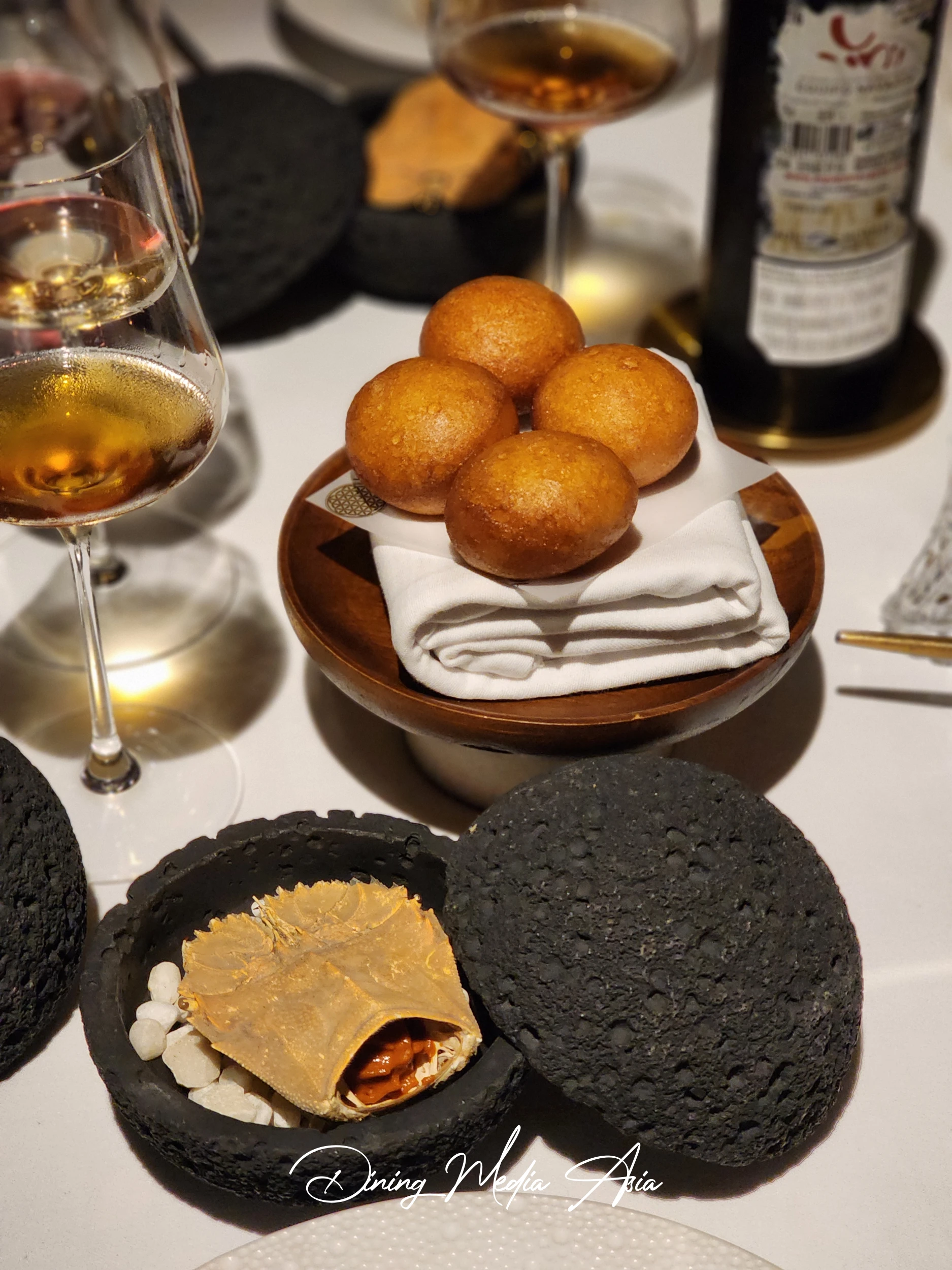
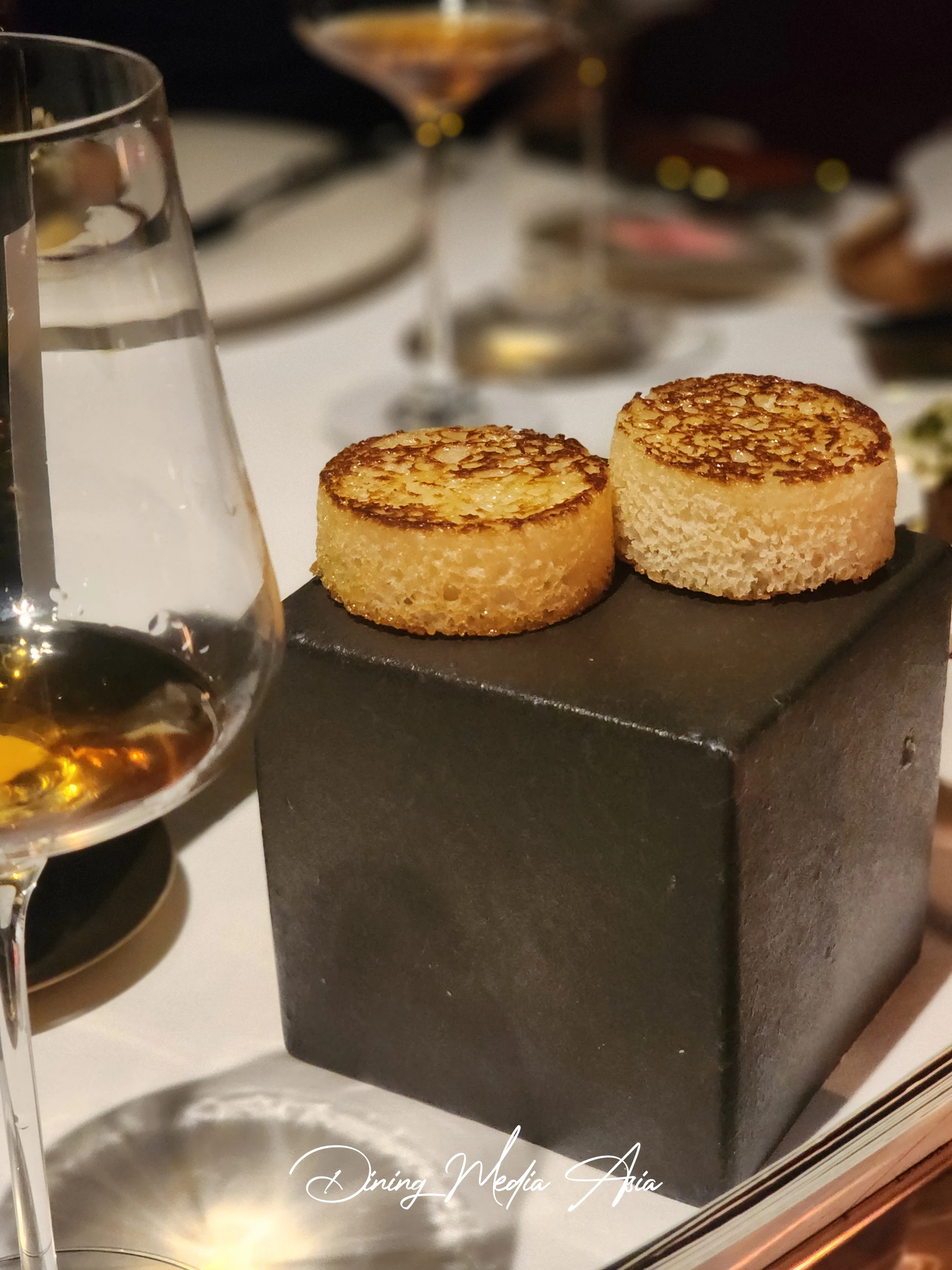
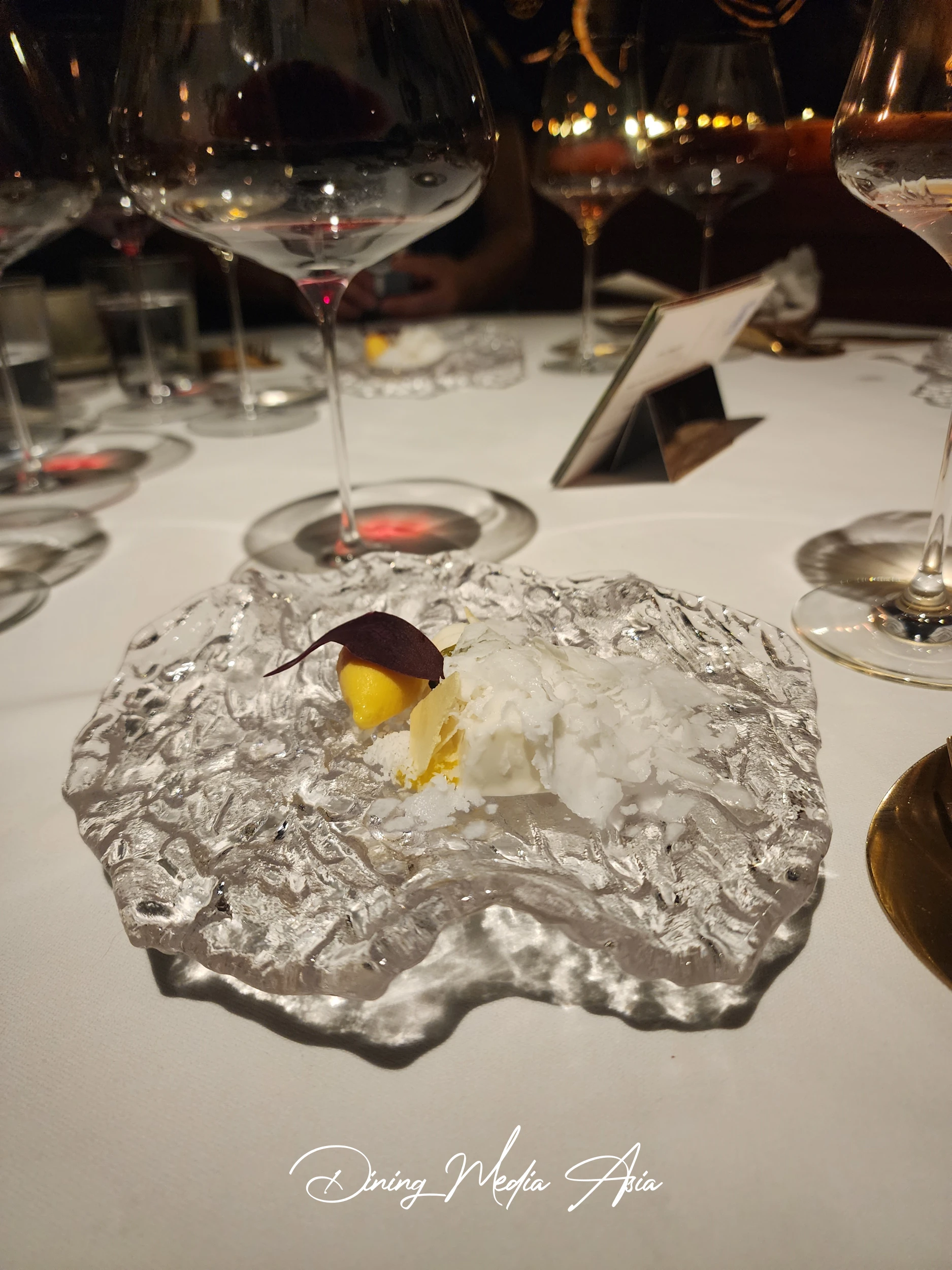
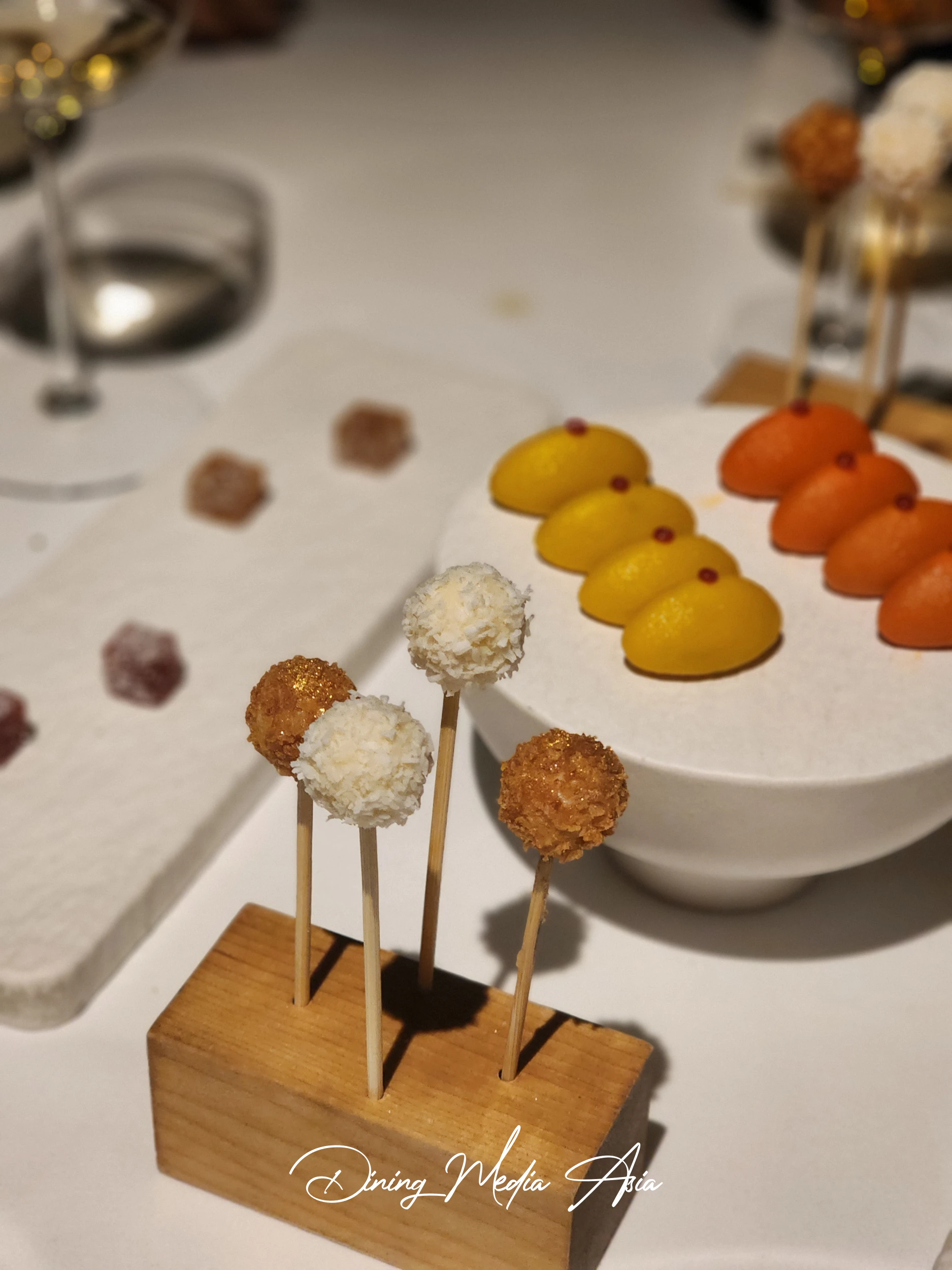
댓글